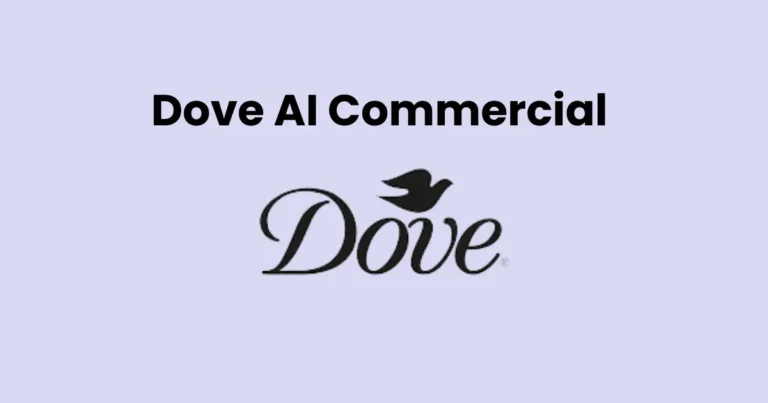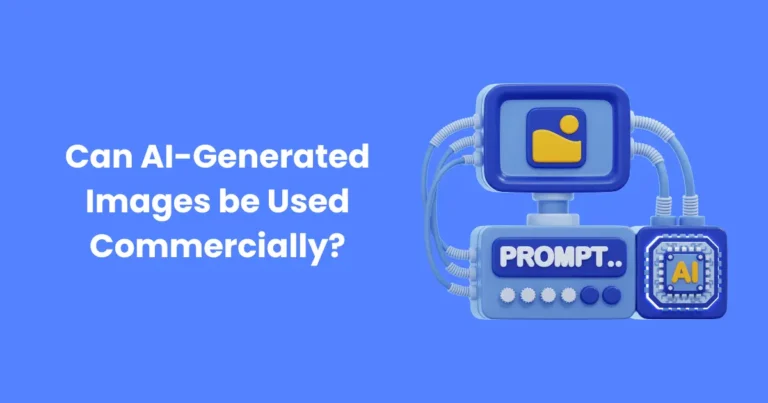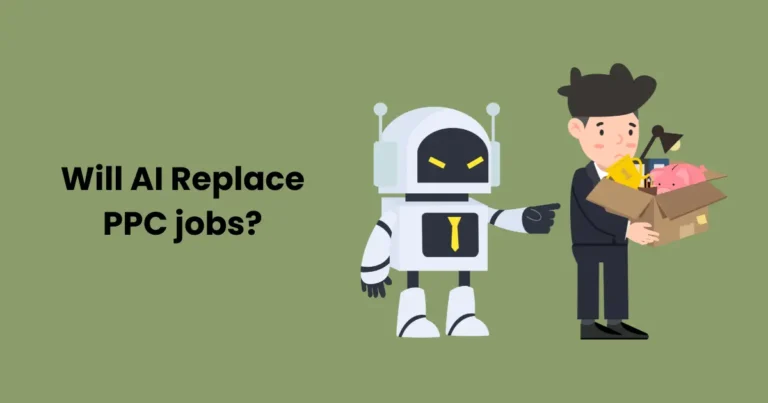AI Commercial Softwares | Types of AI Commercial Softwares

Contents
- 1 The Benefits of Using AI Commercial Softwares
- 2 Key Features of AI Commercial Softwares
- 3 Types of AI Commercial Softwares
- 4 Popular AI Commercial Softwares in the Market
- 5 How AI Commercial Softwares Are Transforming Businesses
- 5.1 1. Automation of Repetitive Tasks
- 5.2 2. Improved Decision-Making with Data-Driven Insights
- 5.3 3. Personalization of Customer Experiences
- 5.4 4. Enhanced Customer Support and Engagement
- 5.5 5. Cost Reduction and Operational Efficiency
- 5.6 6. Predictive Analytics and Risk Management
- 5.7 7. Improved Marketing and Sales Strategies
- 5.8 8. Scalable Solutions for Business Growth
- 5.9 9. Fostering Innovation and Competitive Advantage
- 5.10 10. Enhancing Human Collaboration and Productivity
- 5.11 Conclusion
AI commercial softwares are transforming the way businesses operate across industries, offering innovative solutions that improve efficiency, decision-making, and customer experiences. These advanced technologies leverage artificial intelligence to automate complex tasks, analyze large datasets, and generate actionable insights. With the ability to process vast amounts of data in real time, AI commercial softwares are empowering businesses to streamline operations, enhance productivity, and maintain a competitive edge. From automating customer service with chatbots to analyzing data for predictive insights, the capabilities of AI commercial softwares are expanding, making them an indispensable tool in the modern business landscape.
As more businesses embrace AI, the demand for robust and scalable commercial software solutions continues to rise. These tools are not just for large corporations but are also accessible to small and medium-sized enterprises, leveling the playing field and unlocking new opportunities for growth. In this article, we will explore the different types, benefits, and key players in the AI commercial software market, helping you understand how these technologies can drive success for your business.
What Are AI Commercial Softwares?
AI commercial softwares refer to specialized software solutions that utilize artificial intelligence (AI) technologies to perform tasks traditionally handled by humans. These softwares are designed to enhance business operations by automating processes, improving decision-making, and analyzing large amounts of data to generate valuable insights. AI commercial softwares are widely used across various industries, including finance, healthcare, marketing, and customer service, to increase efficiency, reduce costs, and drive innovation.
These tools are powered by different AI technologies such as machine learning, natural language processing (NLP), computer vision, and robotics. By leveraging these technologies, AI commercial softwares can perform complex tasks like predictive analytics, data-driven decision-making, language understanding, and image recognition.
For example, AI commercial softwares in the customer service sector can use chatbots and virtual assistants powered by natural language processing to handle inquiries and provide instant support to customers. In finance, AI tools can analyze market trends and assist in making investment decisions. The versatility of AI commercial softwares makes them highly valuable in optimizing business operations and staying competitive in today’s fast-paced market.
The Benefits of Using AI Commercial Softwares
The adoption of AI commercial softwares offers a wide range of benefits for businesses looking to optimize their operations and stay ahead of the competition. These intelligent tools can significantly enhance productivity, reduce operational costs, and enable businesses to make more informed decisions. Here are some key benefits of using AI commercial softwares:

1. Increased Efficiency and Automation
One of the most significant benefits of AI commercial softwares is the ability to automate repetitive and time-consuming tasks. From data entry to customer support, these tools can handle mundane processes, freeing up employees to focus on more strategic activities. For example, AI chatbots can automate customer inquiries and responses, while machine learning algorithms can quickly process and analyze vast datasets. This results in faster decision-making and smoother business operations.
2. Improved Decision-Making
AI commercial softwares excel at processing large amounts of data and deriving valuable insights from it. By analyzing historical data, trends, and patterns, these tools can help businesses make more informed decisions. AI-powered predictive analytics, for instance, can forecast future trends and help businesses plan accordingly. This data-driven approach allows organizations to make decisions based on evidence rather than guesswork, reducing the risk of errors.
3. Cost Savings
Implementing AI commercial softwares can lead to significant cost savings. By automating tasks, businesses can reduce the need for manual labor, which in turn lowers operational expenses. AI tools also help businesses identify inefficiencies in their processes, allowing for better resource allocation and cost optimization. Moreover, AI commercial softwares can improve accuracy, reducing costly errors and the need for rework or corrections.
4. Enhanced Customer Experience
AI commercial softwares play a crucial role in improving customer experiences. With the help of natural language processing (NLP) and machine learning, businesses can provide personalized services to customers through chatbots, virtual assistants, and recommendation systems. These AI-driven solutions can quickly address customer inquiries, resolve issues, and provide tailored recommendations based on customer preferences. This level of personalized interaction helps build stronger customer relationships and boosts customer satisfaction.
5. Scalability and Flexibility
AI commercial softwares offer businesses the flexibility to scale operations as needed. With AI, companies can handle growing workloads without the need to hire additional staff or invest in physical infrastructure. For instance, AI tools can manage increased customer interactions, process more data, and generate insights more efficiently as the business expands. This scalability ensures that businesses can grow without sacrificing the quality of their services.
6. Innovation and Competitive Advantage
AI commercial softwares help businesses stay innovative by enabling them to harness the latest advancements in technology. By adopting AI tools, companies can gain a competitive edge in their respective industries. Whether it’s through more efficient operations, smarter decision-making, or enhanced customer experiences, AI commercial softwares provide businesses with the resources to outperform competitors. As AI continues to evolve, businesses that adopt these tools early are more likely to stay ahead of the curve.
Key Features of AI Commercial Softwares
AI commercial softwares are designed with a range of features that empower businesses to automate processes, make data-driven decisions, and enhance operational efficiency. These features are specifically tailored to address the diverse needs of organizations across various industries, making AI tools indispensable in modern business strategies. Below are some of the key features of AI commercial softwares:

1. Automation of Routine Tasks
One of the most valuable features of AI commercial softwares is the ability to automate repetitive tasks that would otherwise require human intervention. Whether it’s processing invoices, handling customer inquiries, or sorting data, AI tools can take over these tasks, saving time and reducing the need for manual labor. Automation ensures that operations run smoothly, with minimal errors and delays, improving overall productivity and freeing up employees to focus on higher-value activities.
2. Machine Learning Capabilities
Machine learning (ML) is at the core of many AI commercial softwares. By utilizing algorithms, these tools can learn from historical data, identify patterns, and make predictions. Machine learning enables businesses to improve decision-making by forecasting trends, customer behavior, and market shifts. This capability allows organizations to adjust their strategies proactively and stay ahead of the competition.
3. Natural Language Processing (NLP)
Natural language processing (NLP) is a powerful feature of AI commercial softwares, enabling them to understand, interpret, and respond to human language. NLP is commonly used in chatbots, virtual assistants, and customer support systems, where AI tools interact with users in real-time. NLP enhances customer experiences by allowing businesses to provide personalized, context-aware responses and improve communication efficiency. Furthermore, NLP can be used for sentiment analysis, helping businesses understand customer feedback and make improvements based on their sentiments.
4. Predictive Analytics
AI commercial softwares often include predictive analytics features, which analyze historical data to forecast future trends and outcomes. This is especially valuable for businesses in industries like finance, marketing, and retail. Predictive analytics can help companies anticipate customer demands, optimize inventory, and identify potential risks before they occur. By leveraging these insights, businesses can make data-driven decisions that improve operations and mitigate risks.
5. Computer Vision
Computer vision is a specialized AI feature that enables softwares to interpret and understand visual data, such as images and videos. Through computer vision, AI tools can perform tasks like image recognition, facial recognition, and object detection. This technology is widely used in industries such as healthcare (e.g., medical imaging), retail (e.g., product recognition), and security (e.g., surveillance). Computer vision enhances the ability to automate visual inspections and improve operational accuracy.
Types of AI Commercial Softwares
AI commercial softwares come in various types, each tailored to specific business needs and industry applications. These tools are designed to leverage the power of artificial intelligence to optimize operations, enhance productivity, and improve decision-making. Below are some of the most common types of AI commercial softwares:

1. AI-Powered Customer Service Softwares
Customer service is one of the most significant areas where AI commercial softwares are making an impact. AI-powered customer service tools help businesses improve customer support through automation and real-time responses. These tools often include chatbots, virtual assistants, and automated helpdesk systems that can handle customer inquiries, provide solutions, and resolve issues without human intervention.
- Key Features: Natural Language Processing (NLP), sentiment analysis, 24/7 availability, self-service options.
- Examples: Zendesk, LivePerson, Intercom.
2. AI Marketing Softwares
AI marketing softwares use artificial intelligence to optimize marketing strategies, personalize campaigns, and improve customer engagement. These tools analyze vast amounts of consumer data to identify patterns and predict behaviors, helping businesses create targeted marketing campaigns that resonate with their audiences. AI-driven marketing tools are also used for email automation, content recommendations, and social media analytics.
- Key Features: Predictive analytics, customer segmentation, automated content creation, ad targeting, campaign performance tracking.
- Examples: HubSpot, Marketo, Persado.
3. AI-Based Analytics and Business Intelligence (BI) Softwares
AI-based analytics and BI tools leverage machine learning and data processing techniques to analyze large datasets and extract valuable insights. These tools are designed to help businesses understand trends, monitor performance, and make data-driven decisions. AI-driven analytics can assist with predictive analytics, anomaly detection, and real-time data processing to guide business strategy and operations.
- Key Features: Data visualization, predictive modeling, trend analysis, real-time analytics.
- Examples: Tableau, IBM Watson Analytics, Power BI.
4. AI Sales Softwares
AI sales software is designed to optimize the sales process by automating tasks, predicting customer needs, and enhancing lead generation efforts. These tools use machine learning to score leads, recommend the best sales strategies, and even automate follow-ups. AI-powered CRM (Customer Relationship Management) systems help sales teams track interactions, predict sales outcomes, and personalize customer engagement.
- Key Features: Lead scoring, predictive sales analytics, automation of repetitive tasks, customer relationship management.
- Examples: Salesforce Einstein, Zoho CRM, InsideSales.
5. AI Human Resources and Recruitment Softwares
AI in human resources (HR) and recruitment is revolutionizing the way businesses hire, manage, and retain talent. AI-powered recruitment tools help automate the candidate screening process, assess resumes, and even conduct initial interviews. These softwares also support employee engagement, performance management, and retention strategies using predictive analytics and sentiment analysis.
- Key Features: Automated resume screening, predictive hiring models, employee engagement tracking, workforce planning.
- Examples: HireVue, Pymetrics, ADP Workforce Now.
6. AI Financial Software
AI financial software solutions are designed to help businesses automate financial operations, enhance decision-making, and improve risk management. These tools are used for tasks like budgeting, forecasting, fraud detection, and financial reporting. By leveraging machine learning and predictive analytics, AI financial tools can also assist in investment strategies, portfolio management, and market analysis.
- Key Features: Predictive analytics, fraud detection, automated bookkeeping, financial forecasting.
- Examples: QuickBooks AI, Kabbage, Zest AI.
7. AI Supply Chain and Logistics Softwares
AI commercial softwares are transforming supply chain and logistics management by providing real-time insights into inventory levels, shipment tracking, demand forecasting, and optimization of routes. These tools help businesses streamline their supply chains, reduce costs, and ensure timely deliveries. AI solutions can predict disruptions, optimize inventory management, and automate procurement processes.
- Key Features: Demand forecasting, route optimization, inventory management, supply chain visibility.
- Examples: Llamasoft, ClearMetal, Transplace.
Popular AI Commercial Softwares in the Market
The AI software market is rapidly growing, with numerous tools and platforms designed to meet various business needs. These AI commercial softwares help companies streamline operations, improve customer experiences, and leverage data-driven insights. Below are some of the most popular AI commercial softwares currently in the market, showcasing their capabilities and areas of application:

1. Salesforce Einstein
Salesforce Einstein is a leading AI-powered tool integrated into the Salesforce platform. It enhances customer relationship management (CRM) with AI capabilities such as predictive analytics, lead scoring, automated workflows, and personalized recommendations. With Einstein, businesses can deliver smarter customer experiences, optimize sales strategies, and make data-driven decisions.
- Key Features: Predictive analytics, AI-driven customer insights, automation of sales processes, personalized customer interactions.
- Best For: Sales and marketing teams looking to optimize CRM systems.
2. HubSpot
HubSpot is a popular inbound marketing and sales platform that leverages AI to help businesses attract, engage, and delight customers. AI-powered features in HubSpot include automated email marketing, content recommendations, lead scoring, and chatbots for customer service. HubSpot’s AI tools help businesses create personalized marketing campaigns and optimize sales funnels.
- Key Features: AI-driven email automation, content optimization, customer segmentation, lead nurturing.
- Best For: Marketing teams focused on inbound strategies and customer acquisition.
3. Zendesk
Zendesk is a customer service software that incorporates AI to provide better support through automated chatbots, AI-powered ticket routing, and sentiment analysis. By leveraging machine learning, Zendesk enhances customer service teams’ ability to manage customer interactions, reduce response times, and deliver personalized assistance.
- Key Features: AI-powered chatbots, automated ticket management, sentiment analysis, real-time customer insights.
- Best For: Businesses seeking to improve customer support and service efficiency.
4. IBM Watson
IBM Watson is a robust AI platform used by businesses across multiple industries to harness the power of machine learning, data analytics, and natural language processing (NLP). Watson provides solutions for various applications, including customer service, data analysis, healthcare, and automation. Its AI capabilities help organizations process unstructured data, predict outcomes, and improve decision-making.
- Key Features: NLP, machine learning, predictive analytics, AI-driven insights, automation.
- Best For: Enterprises looking for advanced AI solutions for diverse business applications.
5. ChatGPT (by OpenAI)
OpenAI’s ChatGPT has gained popularity for its powerful language models capable of understanding and generating human-like text. It is used by businesses for customer service automation, content generation, and natural language processing tasks. ChatGPT is a versatile tool that can integrate with various platforms and provide chatbot functionalities for customer interactions.
- Key Features: Natural language understanding, real-time customer support, content generation, text analysis.
- Best For: Companies seeking conversational AI and content automation.
6. Intercom
Intercom is a customer messaging platform that uses AI to deliver personalized support and automate customer interactions. With its AI-powered chatbots, messaging, and helpdesk features, Intercom allows businesses to offer real-time customer service, send automated messages, and track user behavior for more personalized engagement.
- Key Features: AI chatbots, automated messaging, customer segmentation, real-time analytics.
- Best For: Customer support teams and businesses looking to engage customers through messaging.
7. Google Cloud AI
Google Cloud AI offers a suite of machine learning tools and AI solutions that businesses can integrate into their workflows. It includes pre-trained models for tasks like image recognition, text analysis, and speech recognition. With Google Cloud AI, organizations can build and deploy custom machine learning models, enhance existing applications, and leverage powerful data analytics tools.
- Key Features: Image and speech recognition, machine learning APIs, text analysis, custom model development.
- Best For: Businesses seeking to integrate AI capabilities into custom applications or large-scale projects.
8. Adobe Sensei
Adobe Sensei is an AI and machine learning platform that powers many Adobe products, including Photoshop, Illustrator, and Adobe Experience Cloud. It provides tools for automating image and video editing, content personalization, and data analysis. Adobe Sensei helps businesses improve creative workflows and deliver personalized experiences to customers.
- Key Features: Automated content creation, image recognition, data analysis, personalized marketing.
- Best For: Creative teams and businesses in marketing or content creation looking for AI-driven automation.
9. Hootsuite Insights
Hootsuite Insights, powered by AI, is a social media analytics tool that helps businesses monitor and analyze social media performance. It uses AI-driven sentiment analysis, trend identification, and competitive benchmarking to provide actionable insights. Businesses can use Hootsuite to optimize their social media strategies and improve audience engagement.
- Key Features: Sentiment analysis, trend identification, competitor analysis, real-time reporting.
- Best For: Marketing teams focused on social media engagement and performance analysis.
10. Sisense
Sisense is a business intelligence platform that uses AI and machine learning to provide deep data analytics, visualizations, and actionable insights. It helps businesses make data-driven decisions by integrating data from multiple sources and providing AI-powered analytics that uncover hidden trends and patterns.
- Key Features: Data integration, predictive analytics, machine learning models, data visualizations.
- Best For: Companies seeking advanced analytics and business intelligence capabilities.
11. Clearscope
Clearscope is an AI-powered content optimization tool that helps businesses create high-quality, SEO-friendly content. It uses machine learning to analyze top-performing content and provide recommendations on keywords, phrases, and topics to include in articles. Clearscope assists content marketers and writers in improving the relevance and SEO ranking of their content.
- Key Features: SEO optimization, keyword analysis, content recommendations, performance tracking.
- Best For: Content marketers and SEO professionals looking to improve content rankings.
12. Cortexica
Cortexica is a computer vision and AI software platform that helps businesses automate visual inspections and improve security measures. It uses deep learning algorithms to analyze images and video footage, enabling industries such as retail, healthcare, and manufacturing to enhance their operational efficiency and security.
- Key Features: Visual recognition, image analysis, security monitoring, automated inspections.
- Best For: Retailers, manufacturers, and businesses in security-sensitive industries.
These popular AI commercial softwares represent the diversity and depth of AI applications across different industries. From automating customer service and marketing to enabling real-time data analysis and predictive insights, these tools are transforming business operations and helping organizations stay competitive in the fast-evolving digital landscape. By leveraging AI-driven solutions, businesses can unlock new efficiencies, improve decision-making, and deliver more personalized experiences to customers.
How AI Commercial Softwares Are Transforming Businesses
AI commercial softwares are revolutionizing the way businesses operate by automating processes, enhancing customer experiences, and providing actionable insights that drive decision-making. These powerful tools are becoming integral to modern business strategies, helping companies stay competitive in a fast-evolving market. Below are the key ways in which AI commercial softwares are transforming businesses:
1. Automation of Repetitive Tasks
One of the most significant transformations brought about by AI commercial softwares is the automation of repetitive and time-consuming tasks. Tasks that once required human intervention, such as data entry, invoice processing, customer inquiries, and email responses, can now be efficiently handled by AI-driven systems. This frees up valuable human resources for higher-value tasks and boosts overall productivity.
- Example: AI-powered chatbots can automate customer service interactions, answering common questions and solving basic problems without the need for human agents. This enables customer service teams to focus on more complex issues.
2. Improved Decision-Making with Data-Driven Insights
AI commercial softwares excel in processing vast amounts of data at high speeds, providing businesses with actionable insights that can enhance decision-making. By analyzing historical data and identifying patterns, AI tools help businesses predict trends, assess risks, and make informed decisions in real time. AI-powered analytics platforms enable companies to forecast customer behavior, optimize inventory management, and improve financial strategies.
- Example: AI-based business intelligence tools, such as IBM Watson and Tableau, help companies uncover hidden insights from their data, enabling them to adjust strategies and make data-driven decisions that lead to growth.
3. Personalization of Customer Experiences
AI commercial softwares are enabling businesses to deliver highly personalized customer experiences. By analyzing customer data, such as browsing behavior, purchase history, and preferences, AI tools can tailor marketing campaigns, product recommendations, and customer interactions to individual needs. This level of personalization improves customer satisfaction, fosters brand loyalty, and boosts conversion rates.
- Example: AI-powered marketing tools like HubSpot and Salesforce Einstein use predictive analytics to send personalized emails, suggest products, and offer targeted promotions based on customer behavior, resulting in increased engagement and sales.
4. Enhanced Customer Support and Engagement
AI commercial softwares are transforming customer support by providing instant, around-the-clock assistance. AI-powered chatbots and virtual assistants can handle inquiries, troubleshoot issues, and provide real-time solutions to customers, reducing response times and increasing satisfaction. These tools also learn from customer interactions, continuously improving their ability to provide accurate and relevant responses.
- Example: Zendesk’s AI-driven support system uses machine learning to route tickets to the appropriate department, automate responses, and resolve issues quickly, ensuring customers receive timely assistance.
5. Cost Reduction and Operational Efficiency
AI commercial softwares help businesses reduce operational costs by streamlining processes and improving efficiency. For instance, AI-driven supply chain management tools can optimize inventory levels, automate procurement, and improve demand forecasting, all of which contribute to cost savings. Additionally, AI tools can enhance employee productivity by automating mundane tasks, allowing them to focus on higher-value activities.
- Example: AI-based financial software like QuickBooks AI automates bookkeeping, generates financial reports, and detects anomalies, reducing the need for manual accounting work and minimizing human errors.
6. Predictive Analytics and Risk Management
AI commercial softwares use predictive analytics to forecast future outcomes based on historical data, which is particularly valuable in risk management and strategic planning. By identifying potential risks and opportunities, businesses can take proactive measures to mitigate risks and capitalize on emerging trends. This predictive capability enhances financial forecasting, market predictions, and operational planning.
- Example: AI tools like Kabbage use predictive analytics to assess credit risk for small businesses, helping lenders make informed decisions about loan approvals and interest rates.
7. Improved Marketing and Sales Strategies
AI-powered marketing and sales softwares are transforming how businesses approach lead generation, marketing campaigns, and customer acquisition. By using machine learning and predictive analytics, AI tools help businesses identify high-value leads, optimize ad campaigns, and personalize sales outreach. AI can also assist in optimizing sales funnels, ensuring that leads are nurtured effectively and converted into loyal customers.
- Example: Tools like Marketo and Persado use AI to create personalized marketing messages, optimize advertising strategies, and identify the best times to engage with customers, resulting in better conversion rates and improved ROI.
8. Scalable Solutions for Business Growth
As businesses grow, the complexity of their operations also increases. AI commercial softwares provide scalable solutions that can grow with the business. These tools can handle increasing volumes of data, customers, and transactions without sacrificing performance or efficiency. This scalability ensures that businesses can maintain smooth operations as they expand and avoid the need for costly manual interventions.
- Example: Salesforce’s AI-powered CRM system scales with a business’s needs, providing personalized customer interactions, sales insights, and automated workflows regardless of the company’s size.
9. Fostering Innovation and Competitive Advantage
AI commercial softwares are enabling businesses to stay ahead of the competition by fostering innovation and providing a competitive edge. Companies that adopt AI solutions can enhance product development, improve service delivery, and create new business models that would have been impossible using traditional methods. AI tools provide the insights and capabilities necessary to stay innovative and agile in a rapidly evolving market.
- Example: AI-powered product design tools like Autodesk Fusion 360 help businesses design and prototype new products more efficiently, allowing them to bring innovative solutions to market faster than competitors.
10. Enhancing Human Collaboration and Productivity
AI commercial softwares do not replace human workers; instead, they enhance human capabilities by automating tasks and providing valuable insights. By integrating AI into their workflows, businesses can empower their employees to be more productive and focus on tasks that require creativity, critical thinking, and emotional intelligence. This collaboration between AI and humans creates a more efficient, dynamic work environment.
- Example: AI tools like Microsoft Power BI and Google Analytics provide employees with advanced data analysis capabilities, enabling them to make better-informed decisions and focus on strategy and innovation rather than routine data processing.
Conclusion
AI commercial softwares are rapidly transforming the business landscape by offering innovative solutions that automate tasks, enhance decision-making, and optimize customer interactions. These tools provide businesses with the ability to streamline operations, improve efficiency, and reduce costs, ultimately leading to greater productivity and profitability. By leveraging the power of AI, companies can deliver personalized experiences, make data-driven decisions, and maintain a competitive edge in an ever-evolving market. As AI technology continues to evolve, its potential to further revolutionize industries will only grow. Businesses that embrace AI commercial softwares are well-positioned to stay ahead of the curve, adapt to market changes, and drive long-term success. In the future, AI is expected to play an even more integral role in shaping business strategies, fostering innovation, and creating new opportunities for growth.






